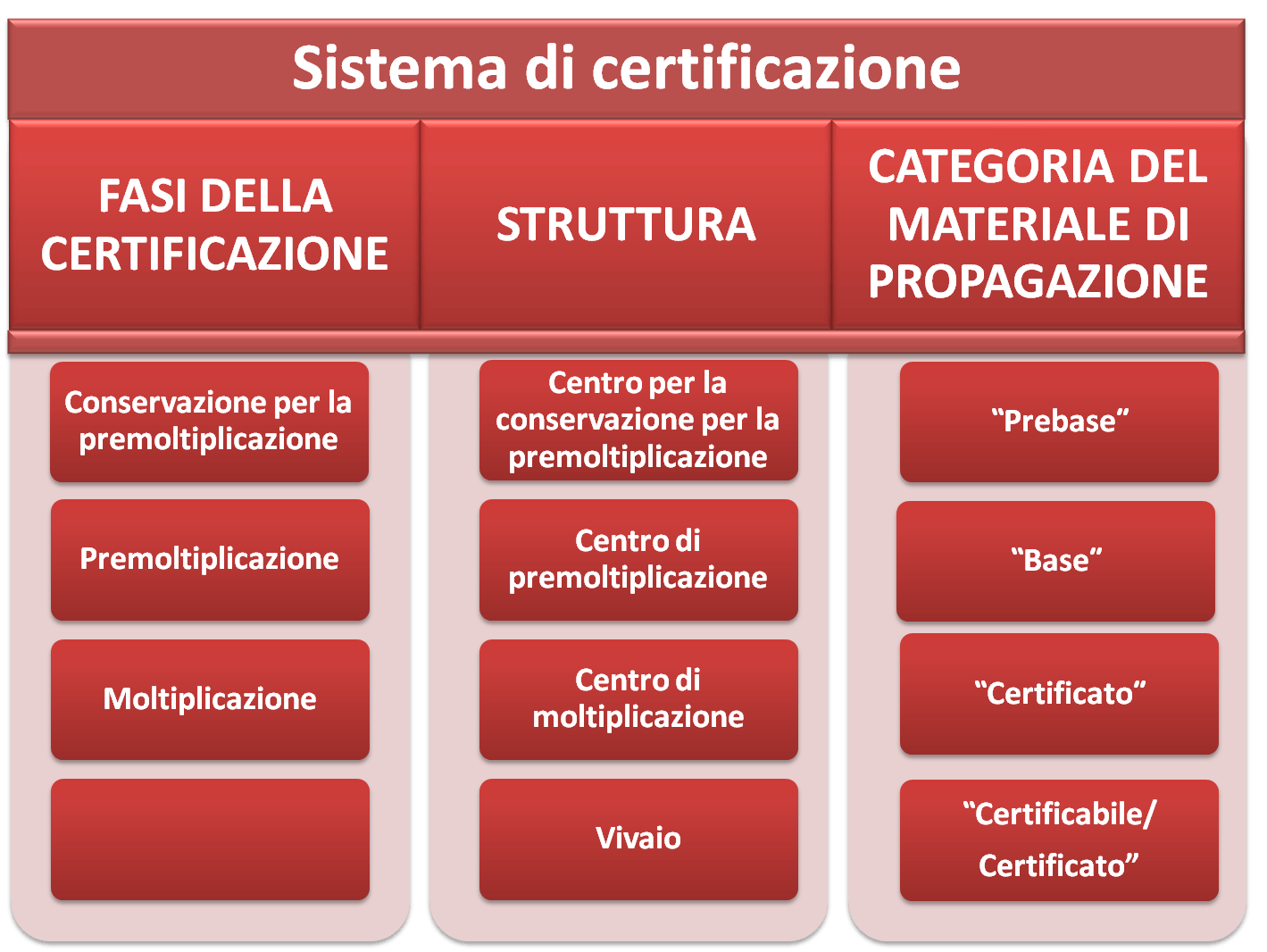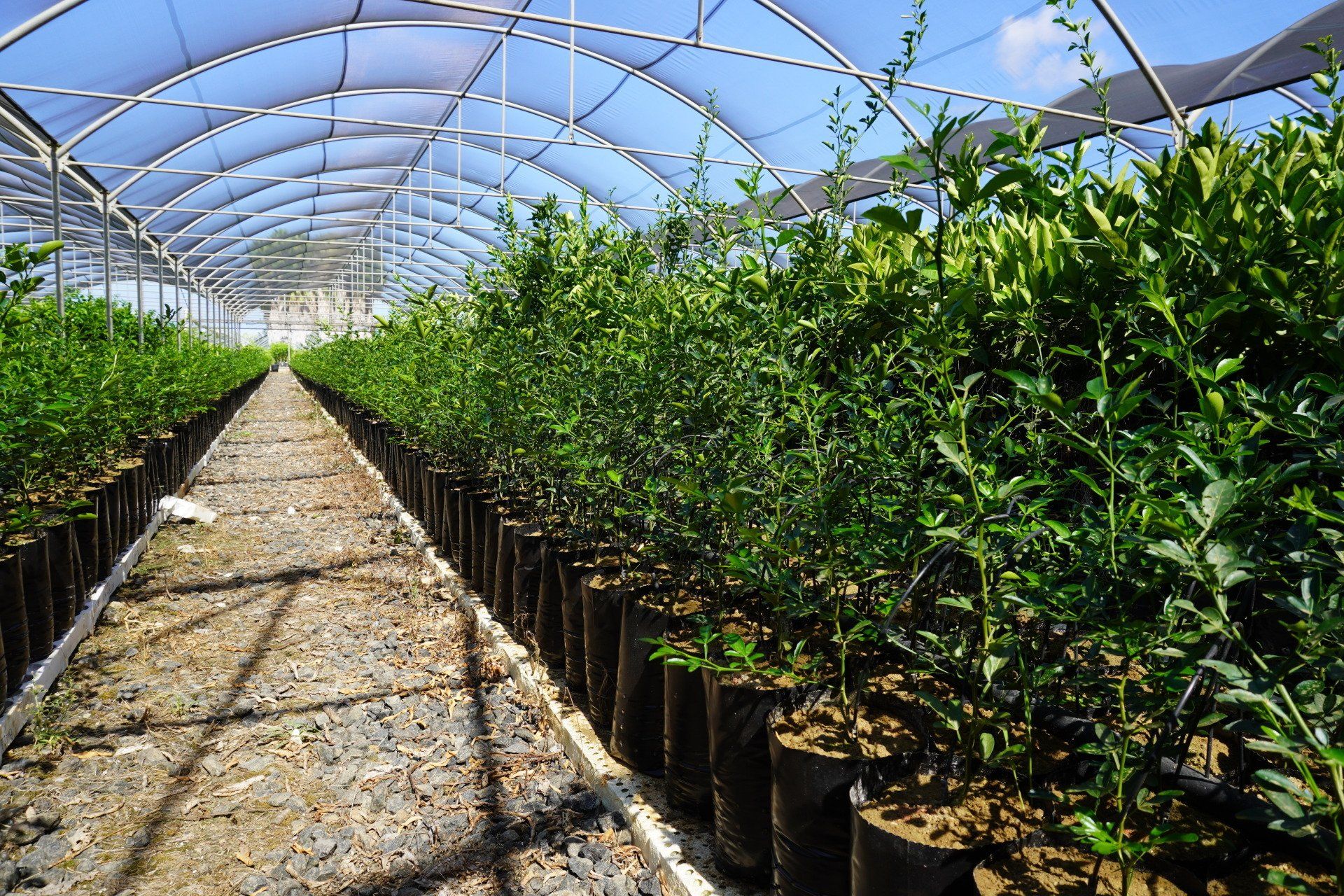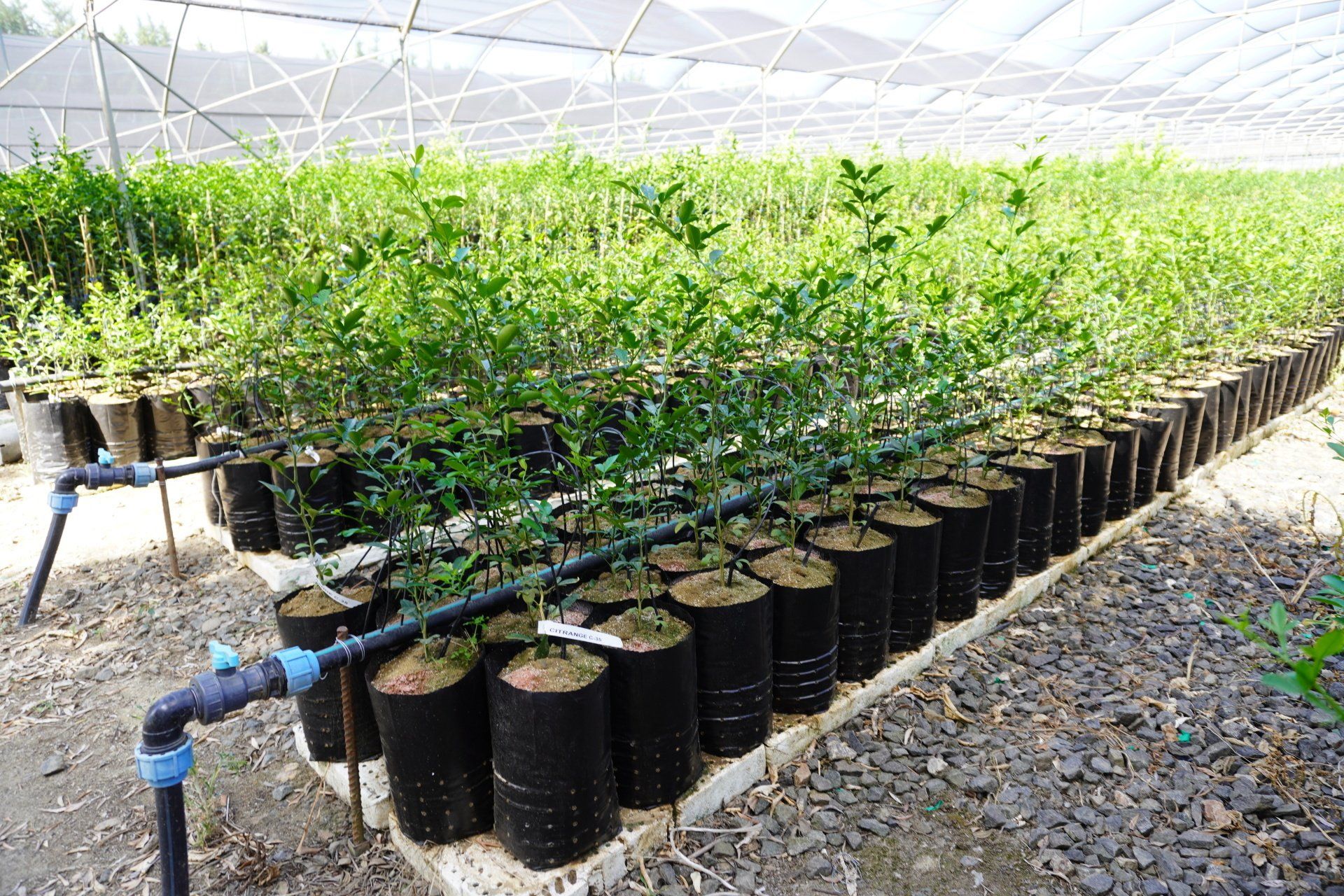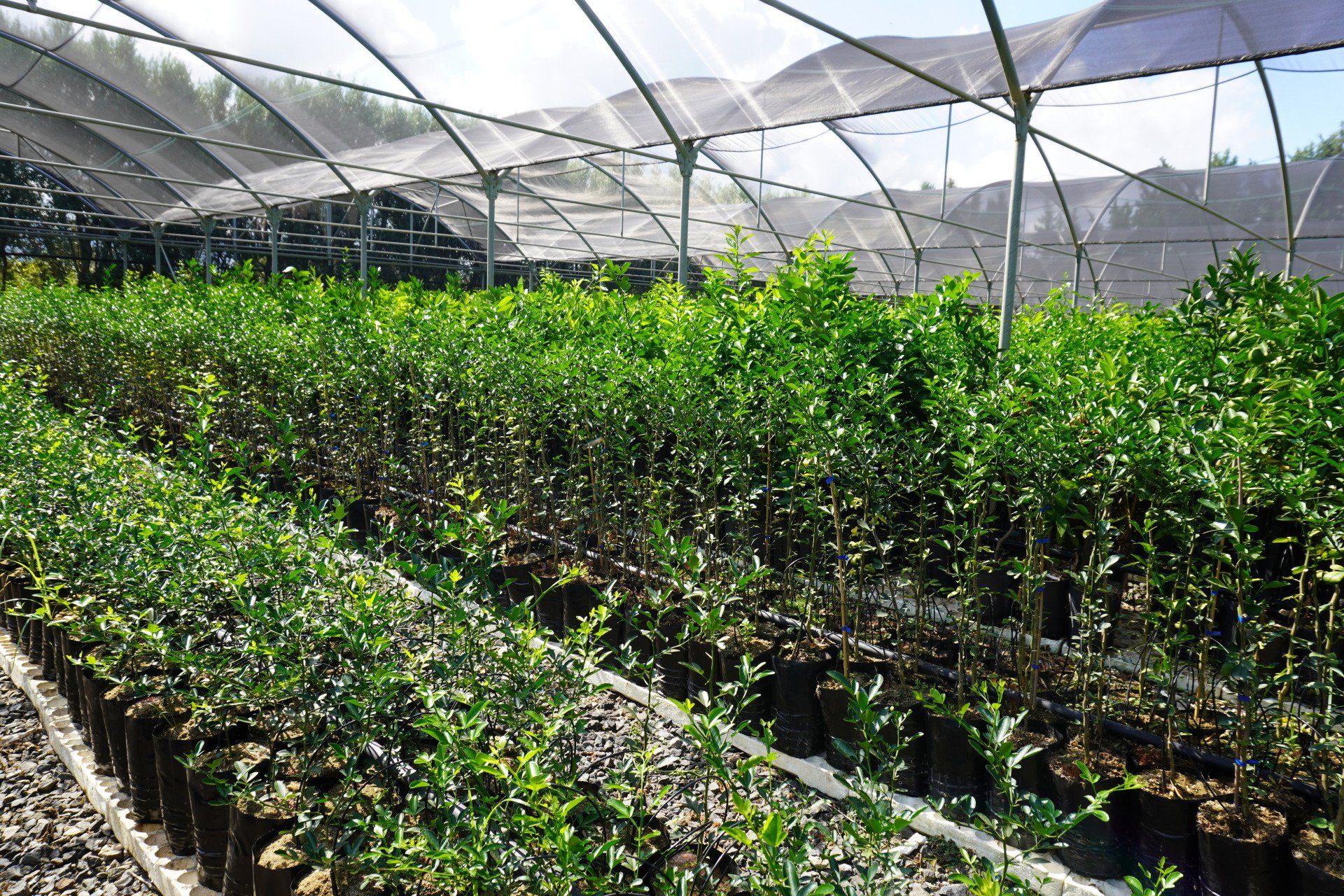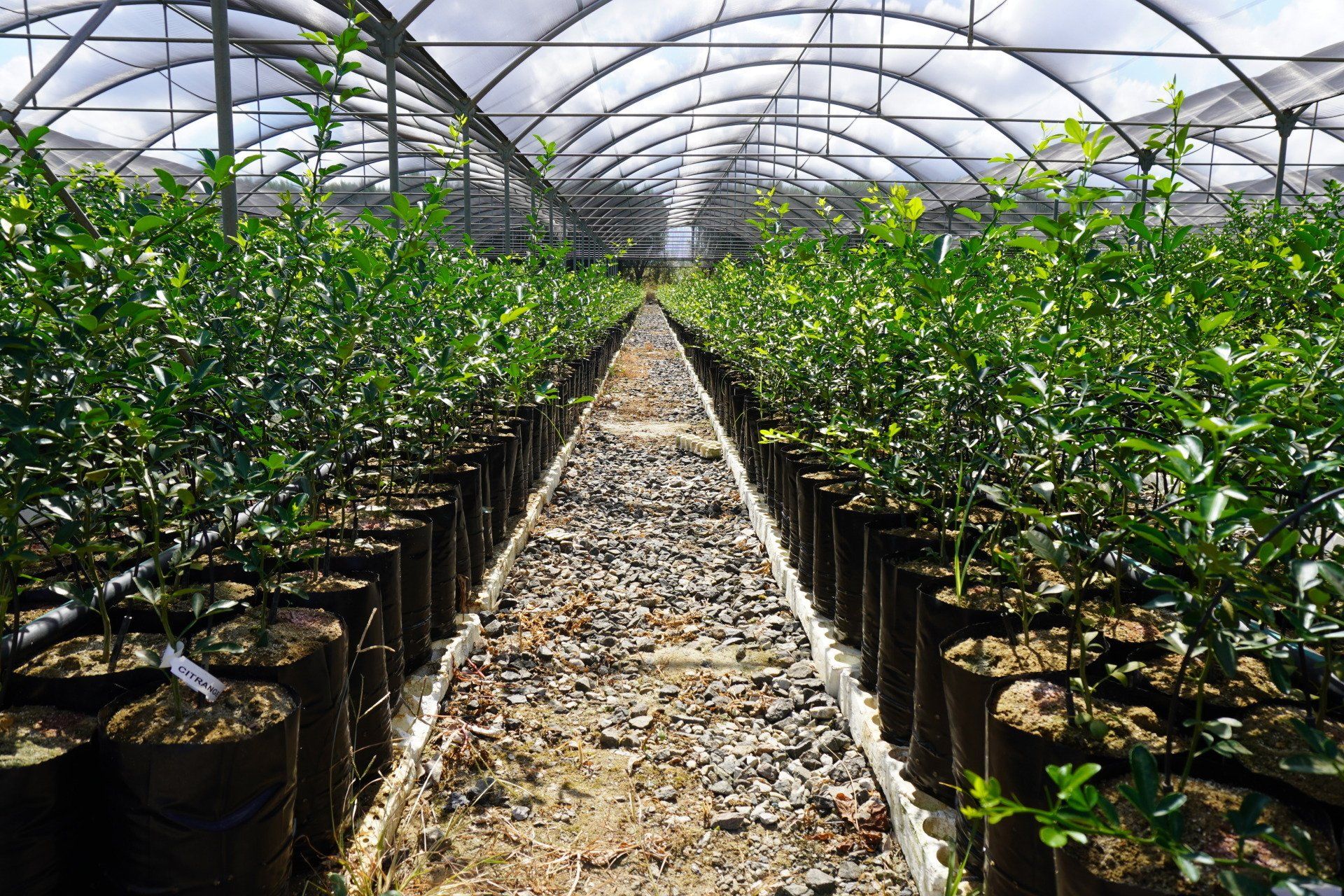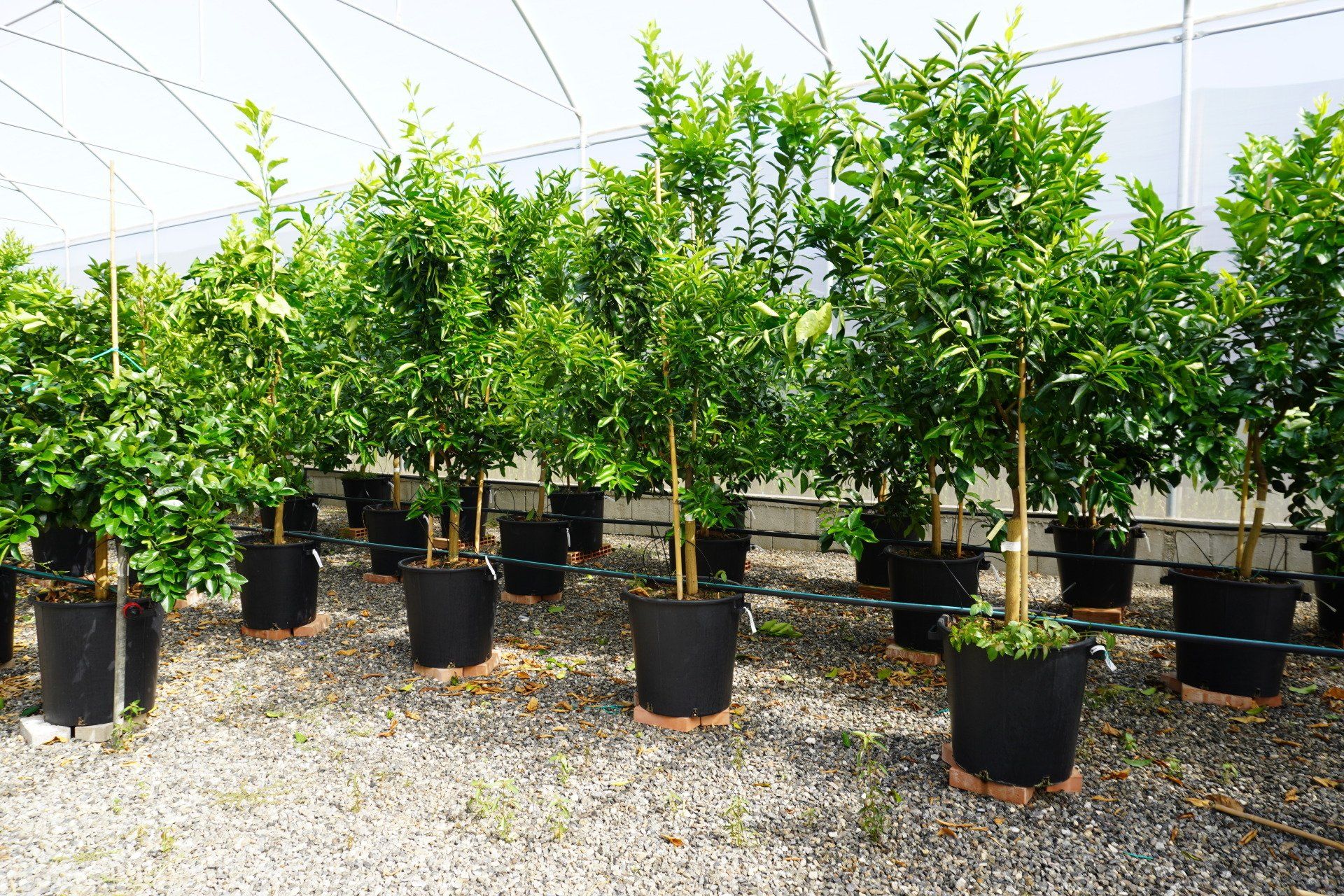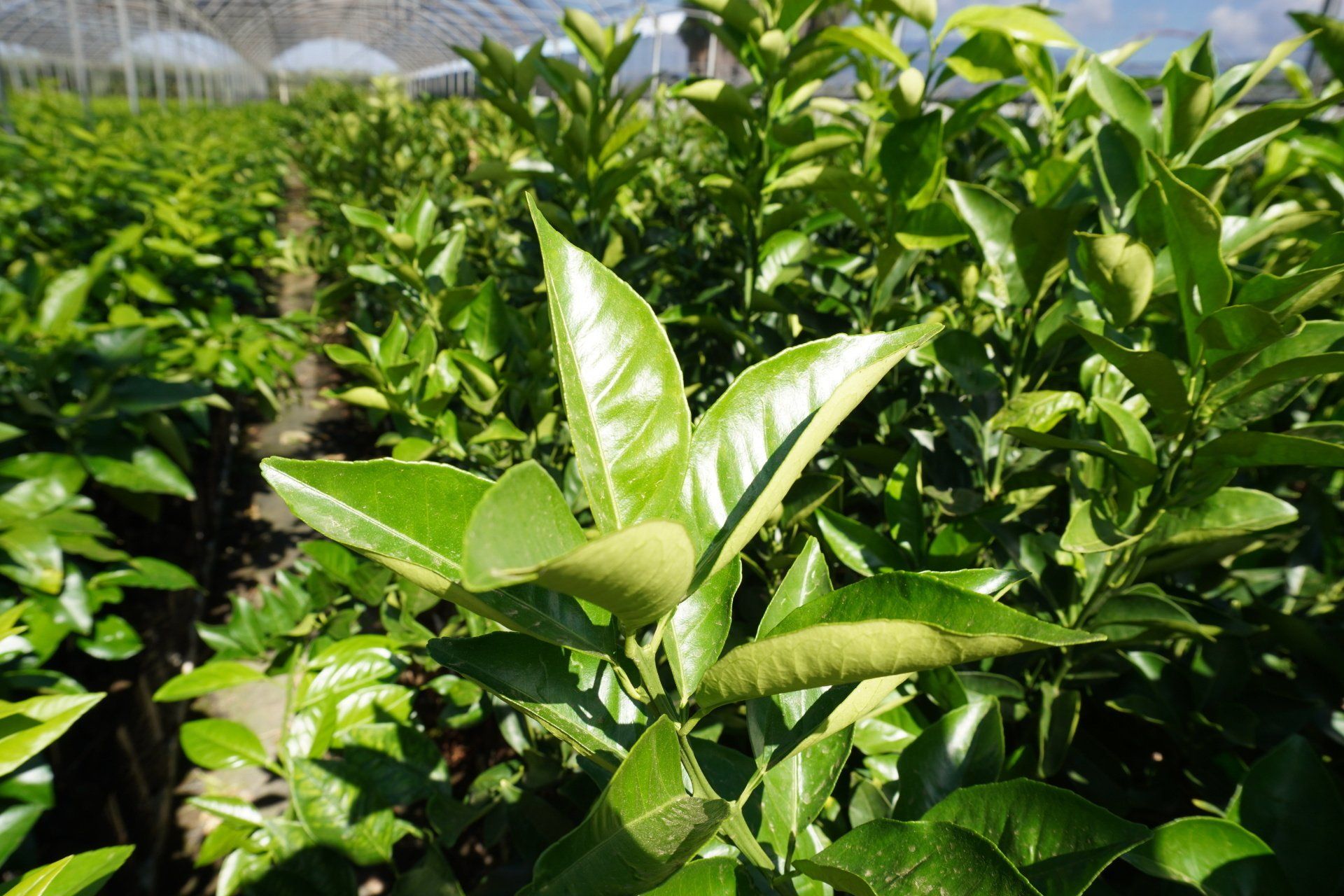Certified citrus plants
Vivai Milone in Lamezia Terme produces over 60% of Italy's certified citrus plants, which are in demand throughout the Mediterranean basin.
Citrus fruit production in Italy
Italy is the third Mediterranean country known for citrus production and the 12th worldwide. Although the cultivated areas are decreasing, there is a growth in production, driven mainly by Sicily and Calabria.
As far as national production and areas are concerned, the most up-to-date data (ISTAT, 2017) show an Italy whose areas in production are declining, from 141 thousand hectares in 2016 to about 138 thousand in 2017, a drop of 3%. The overall production of citrus fruit, however, shows no sign of decreasing, indeed it increased by 6% compared to the previous year, reaching almost 2.9 million tonnes. Driving this growth is the increase in citrus production in Sicily (12.6%) and Calabria (9.5%). Sicily and Calabria are also the regions where the most citrus fruits are produced, specifically 1.6 million tonnes in the former and 765 thousand tonnes in the latter. This is followed by Puglia (193 thousand tons), Basilicata (112 thousand) and Sardinia (73 thousand).
Among the most produced citrus fruits in Italy there are certainly oranges, which represent about 63% of the national citrus production, followed by clementines with 18%, lemons with 14%, mandarins with 4% and the remaining 1% is represented by other citrus species.
Certification: Vivai Milone produce 60% of certified citrus plants in Italy
Vivai Milone dedicates its heart and passion to the cultivation of certified plants, carefully following the entire process for the production of certified citrus plants with national voluntary certification.
This kind of process is coordinated by the Ministry of Agriculture, Agri-food and Forestry Policies in agreement with the Regional Phytosanitary Service and requires specific attention at every stage, from the choice of substrates and containers to the labelling of the plants with certificate-labels showing the quality achieved.
Why opt for a certified plant? Because there is a double guarantee of genetic correspondence and phytosanitary status.



